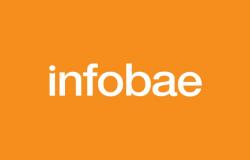Hear
NEW YORK.– When Nathanael was in preschool, he told his mother, Diana Lopez, that he never wanted to go back to school. His teacher yelled at him, he said. When Lopez picked him up from school, she used to start crying immediately: Nathanael has autism and, in a class with 25 children, it seemed that the teacher had few strategies to work with him, the mother recalled.
This year, at a new school, 7-year-old Nathanael was happier. He only shared a teacher with six other students in the entire school.
Nathanael attended a microschool, a type of super-small private school that is increasingly popular and largely unregulated; It typically serves fewer students than those enrolled in a single class at a traditional institution.
These programs benefit from two trends. Since the Covid pandemic interrupted schooling, many parents have rethought their children’s education and are open to non-traditional options. At once, Republican state legislators and taxpayers, who have long supported private school choice, directed more and more money toward microschools across the country.saying they give parents the opportunity to opt out of school districts at a reasonable price, usually between $5,000 and $10,000 a year.
Microschool students are typically registered with their states as homeschoolers.. But this new generation of establishments, like the program Nathanael attended, Kingdom Seed Christian Academy, function more like modern one-room schools, meeting in homes, church basements, and businesses.
They usually open four or five days a week, with full-time teachersfixed curricula, and sometimes even standardized tests.
There is little information about these institutions. But the National Microschooling Center, an advocacy group that surveys program founders, estimates that there are 95,000 microschools and homeschooling groups nationwide, serving more than one million students. During the 2023-24 school year, one-third of schools received public funding through voucher-like programs, up from 18% a year ago.
That number is expected to rise because eight states last year joined Arizona and West Virginia in providing near-universal access to education savings accounts, a type of voucher that can be used to pay for homeschooling expenses. . In April, Georgia also passed a law creating these accounts.
An estimated 1 million American children use public funds for some form of private education, more than double the number before the pandemic, according to a new report from EdChoice, a nonprofit that supports school choice and monitors the sector. .
Anyone can open a microschool, although more than two-thirds of the founders are or were certified teachers. And these schools can teach whatever they want, including biblical versions of science and history. Facilities may not be inspected and sometimes background checks on staff are not necessary.
Although many microschool founders say they serve students with disabilities, the programs do not have to follow federal disability law and most do not provide the therapies and counseling that are often available in public schools. Lopez even said he may not send Nathanael back to Kingdom Seed in the fall, due to the cost and her need for additional support because of his autism.
As momentum for such schools grows, Georgia Democrats argued that instead of investing in vouchers, More money should go to public schools to help them reduce class sizes and hire more counselors and social workers that could serve students with disabilities and low income. The state of Georgia spent an estimated average of $14,000 per student last year, below the national average of $16,000.
“We have groups that would like to impose their values and beliefs on all of our public schools,” said Lisa Morgan, president of the Georgia Association of Educators, an organization affiliated with the teachers union. Microschools, she added, are “another method for them to get their children out of our public schools, where they are experiencing diversity.”
Nathanael’s teacher, Desiree McGee-Greene, founded Kingdom Seed Christian Academy last August, in the suburban home she shares with her parents, husband and son, a student at the school. A family room is now a cheerful classroom, with walls adorned with letters, numbers and artwork.
In April, on a sunny morning, Nathanael was gathered on the carpet with just three classmates ages 5 to 7. The day began with biblical history, while the children put the events of Genesis in order: from “creation” through “corruption” to “catastrophe.”
Christianity is the core of the curriculum, developed by McGee-Greene, formerly a teacher in public and private schools. Approximately a quarter of microschools are religious, according to the National Microschooling Center.
“Anything that is not in the Bible, that goes against what the word of God says, is false,” McGee-Greene commented in an interview in which he explained his educational philosophy. The next principle is that God created everything. It was not millions of years ago: that is another great truth.”
After Bible study and a counting lesson in French, McGee-Greene’s husband, Michael Greene, a former teacher, intervened in math and science classes. In the garden, students drew and wrote in journals about insects and flowers.
Kingdom Seed, which charges $500 a month for full-time tuition, is the core of a family business. The school also received a $10,000 grant from the VELA Educational Fund, a nonprofit organization supported by the Koch and Walton families that calls itself a “community of entrepreneurs” in education.
Additionally, McGee-Greene works as an advisor to teachers who want to create microschools and hosts a podcast where she shares her advice. She also sells custom-made curriculums.
Many founders have multiple sources of income because Microschool fees typically do not equate to a competitive salary.
The average teacher salary in Georgia was about $68,000 last year, plus a benefits package. A typical microschool charges $7,000 per student and starts with seven students, which means a significant salary reduction for the founder, who must also pay rent, supplies and other expenses.
But many program founders said they were trading income for autonomy and passion.
Marisa Chambers, who runs Tri-Cities Christian School, a microschool in south Atlanta, said she left her job as a public school administrator in 2019, in part because she was Frustrated by the state of education for students with disabilities. Many were several years behind academically, and he thought that without much more personalized attention, they were unlikely to catch up.
Alan, 12, met Chambers when he was in kindergarten, at the public elementary school where she worked. He was so withdrawn that he was diagnosed with selective mutism. When his parents or his older sister visited him, they used to see him separated from his classmates.
This spring, I was smiling. With so much attention Chambers devotes to him, and only five classmates, “I really like this school. Here I can learn more,” she said.
Alan’s sister Monica Laton-Perez, 24, who helps care for him, said the young man had experienced “tremendous” growth. But even with a substantial discount, tuition is expensive for the family; In the fall, he will enroll in a charter school.
Chambers said that expects to serve more low-income students in 2025-26 school year, thanks to law, signed by Gov. Brian Kemp in April, which will provide a $6,500 education savings account to parents who withdraw their children from public schools ranked in the bottom 25%. Priority will be given to households earning less than $125,000 for a family of four.
Not all microschools will want to participate in the program. Although the detailed regulations have not yet been published, institutions that accept the money must take annual standardized tests in mathematics and English and communicate the results to the State. They must also hire at least one qualified teacher.
Some microschools are formalizing their situation. Keyanna and Jamal Moreau applied for private school accreditation for Choice Preparatory Academy in Lilburn, Georgia. Their program started as a microschool, but after six years it is no longer so small.
It now serves 40 students, ages 8 to 17, in a building that was previously a law office. Moreau, who studied pedagogy at university, founded the school after his own children had difficulty reading.
The program is secular and, like the Moreaus, almost all the students are of African descent. Rigor is the main axis. One day in April, the older students were studying the Greek and Roman roots of the words, while the younger ones, spread across a large table, built simple electromagnetic motors, with cables and batteries.
Harmony, 11, explained why she did better in this environment than in public school. Here, she said, an adult would sit next to her and explain each lesson or concept, step by step.
Moreau says that most parents would prefer public school if it worked for their children. Public schools are free and their students have access to clubs, sports teams and a wider selection of peers.
But in reality, these schools also tend to promote black students who don’t master the basics.
When students enroll in his program, “I have to rebuild my children,” he said. “They think they can’t do it, that they are stupid, that they can’t be taught.”
“Parents are waking up,” he concluded.
By Dana Goldstein
The New York Times





